The Introduction provides a brief overview of the significance of 5-letter words, highlighting their presence in the English language and word games. It introduces the total number of 5-letter words in the dictionary (12,987) and emphasizes their importance in popular games like Wordle and Scrabble. This section sets the stage for a deeper exploration of these words and their applications.

Understanding 5-Letter Words
Definition and Characteristics
5-letter words are terms that consist of exactly five letters. These words are unique in that they strike a balance between simplicity and complexity, making them an integral part of the English language. They are long enough to convey a range of meanings but short enough to be easily remembered and used in conversation.
Characteristics of 5-letter words often include:
- Consonant-Vowel-Consonant Patterns: Many 5-letter words follow common patterns, such as alternating consonants and vowels (e.g., “table,” “apple”).
- Prefixes and Suffixes: They may include familiar prefixes or suffixes, such as “re-“, “un-“, “-ing”, or “-ed,” which can help in forming different versions of words.
- Varied Meanings: A 5-letter word can be a noun, verb, adjective, or adverb, and its meaning can change based on context. For instance, “light” can refer to brightness (noun), something not heavy (adjective), or the act of igniting (verb).
Frequency and Usage
In the English language, 5-letter words are quite prevalent. Due to their manageable length, they are frequently used in both written and spoken communication. Some 5-letter words are among the most commonly used in the language, such as “house,” “water,” and “great.”
Frequency of use often depends on context. For example:
- Common 5-Letter Words: These are words that appear regularly in day-to-day conversation and writing. Examples include “apple,” “dance,” and “happy.”
- Specialized 5-Letter Words: Some 5-letter words are more specific to certain fields or interests, such as “quark” in physics or “heist” in crime stories.
Applications in Word Games
5-letter words are integral to many popular word games, serving both as a fundamental challenge and a key to scoring high points. Here’s a breakdown of their application in different word games:
Wordle
- Importance of 5-Letter Words: In Wordle, the entire game revolves around guessing a 5-letter word within six attempts. Players must strategically choose their guesses to narrow down the possibilities based on feedback.
- Strategies for Choosing Starting Words: Since each word must be 5 letters long, players often start with words that contain common vowels and consonants (e.g., “CRANE,” “SLATE”). The choice of a good starting word can greatly influence the success of subsequent guesses, making knowledge of a wide range of 5-letter words crucial.
Scrabble and Words with Friends
- Impact on Scoring: In Scrabble and Words with Friends, 5-letter words can significantly boost a player’s score, especially when placed on high-value tiles like Double Word or Triple Letter scores. Additionally, forming a 5-letter word allows players to cover more of the board, potentially opening up new opportunities for higher-scoring plays.
- Tips for Maximizing Points: Players can maximize points by strategically placing 5-letter words to create multiple words simultaneously, utilizing both vertical and horizontal spaces on the board. Knowing a variety of 5-letter words, including those with rare letters like “Q” or “Z,” can also give players an edge.
Crossword Puzzles
- Role in Crossword Clues: 5-letter words are a common length for crossword puzzle answers. Solvers often encounter clues that require a 5-letter response, making familiarity with these words essential for completing puzzles efficiently.
- Techniques for Solving 5-Letter Word Puzzles: Crossword solvers often rely on letter patterns and common prefixes or suffixes to deduce 5-letter words. Recognizing these patterns and having a strong vocabulary of 5-letter words can help in solving clues more quickly and accurately.
Challenges in Learning and Memorizing 5-Letter Words
Learning and memorizing 5-letter words can be challenging for several reasons, despite their relatively simple structure compared to longer words. Here’s an in-depth look at some of these challenges:
1. Volume of Words
- Large Number to Learn: With 12,987 5-letter words in the dictionary, the sheer volume can be overwhelming. Memorizing such a vast number of words requires time and effort, especially when many of them are less common or rarely used in everyday language.
- Retention Difficulty: The more words there are, the harder it becomes to retain and recall them accurately. This is particularly challenging when trying to remember specific words under the pressure of a game or test.
2. Similarities Between Words
- Homophones and Near-Homophones: Words that sound alike but have different meanings or spellings (e.g., “their” vs. “there”) can easily be confused, making it challenging to remember the correct version.
- Common Patterns: Many 5-letter words share similar patterns (e.g., starting with the same letter or ending with common suffixes like “-ing” or “-ed”). This can cause confusion and mix-ups, especially when trying to recall the exact word needed.
3. Irregular Spellings and Pronunciations
- Inconsistent Spelling Rules: English is known for its irregular spelling rules, where pronunciation doesn’t always match the spelling. This inconsistency makes it hard to memorize words like “knack” or “gnash,” which have silent letters or unusual combinations.
- Complex Pronunciations: Some 5-letter words have pronunciations that don’t follow typical phonetic rules, adding an extra layer of difficulty in remembering them. For example, words like “queue” or “whale” may be tricky for learners unfamiliar with these rules.
4. Less Common and Obscure Words
- Low-Frequency Words: Many of the 12,987 5-letter words are rarely used in daily conversation or writing. These low-frequency words are more difficult to remember because they don’t get reinforced through regular usage.
- Obsolete or Archaic Words: Some 5-letter words might be outdated or used only in specific contexts, making them harder to learn and recall unless one has a specific interest in historical or literary language.
5. Contextual Understanding
- Lack of Contextual Clues: Unlike longer words or phrases, 5-letter words often provide limited context for understanding their meaning. Without context, it’s harder to remember what the word represents, especially when learning it in isolation.
- Multiple Meanings: Some 5-letter words can have multiple meanings depending on the context in which they are used. For example, the word “plane” could refer to an aircraft, a flat surface, or a tool for smoothing wood, making it challenging to recall the correct meaning in different situations.
6. Memory Aids and Techniques
- Limited Use of Mnemonics: While mnemonics can be helpful, creating effective memory aids for a large number of 5-letter words can be difficult. Not all words lend themselves to easy mnemonic creation, which can limit the effectiveness of this technique.
- Repetition and Practice: Repetition is key to memorizing words, but it can be tedious and time-consuming. Without consistent practice, it’s easy to forget less frequently encountered 5-letter words.
Complete List of 12,987 5-Letter Words
The Complete List of 12,987 5-Letter Words section is a comprehensive breakdown of all 5-letter words found in the dictionary. This section serves as a valuable resource for anyone looking to enhance their vocabulary, especially in the context of word games and language learning.
Key Components of This Section:
1.Alphabetical Listing
Breakdown by Starting Letter:
- The words are organized alphabetically, starting from ‘A’ and ending with ‘Z.’ This allows readers to easily navigate and locate specific words based on their initial letter.
- Example: Under the letter ‘A,’ you’ll find words like apple, alien, and adapt.
Highlighting Unique or Unusual Words:
- Special attention is given to 5-letter words that are less commonly known or have unique spelling patterns. These words can be particularly useful in word games where rare words may give players an edge.
- Example: Words like quoth (meaning “said”) or zymes (a type of enzyme) might be highlighted for their rarity.
2.Categorization
Grouping by Common Themes:
- Words can be categorized based on themes or topics, making it easier to study related words together. For instance, you might group all 5-letter animal names, action verbs, or geographic locations.
- Example: A list of animal names like tiger, eagle, and whale could be presented together.
Rare or Less Commonly Known Words:
- This sub-section focuses on 5-letter words that are not frequently used in everyday language but are still part of the dictionary. These words can be especially useful for advanced players of word games who are looking to expand their vocabulary.
- Example: Words like fjord (a narrow inlet of the sea between cliffs) or lynch (to execute without legal authority) could be featured here.
Purpose of This Section:
Educational Resource:
- It serves as a learning tool for those who want to build a stronger vocabulary, offering a complete reference of 5-letter words.
Word Game Strategy:
- For players of games like Wordle, Scrabble, or crosswords, having access to a full list of 5-letter words can significantly improve gameplay strategy.
Linguistic Exploration:
- It allows for an exploration of the diversity and richness of the English language, showcasing words from various origins, uses, and meanings.
FAQ’s
1. What are 5-letter words?
- 5-letter words are words in the English language that consist of exactly five letters.
2. Why are 5-letter words important?
- They are crucial in various word games, puzzles, and language exercises. They often appear in games like Wordle, Scrabble, and crosswords.
3. How many 5-letter words are there in the dictionary?
- There are a total of 12,987 5-letter words in the dictionary.
4. How can I access the complete list of 12,987 5-letter words?
- The list can be accessed through specialized word lists, online databases, or dictionaries that provide comprehensive word entries.
5. What are some examples of common 5-letter words?
- Examples include apple, light, chair, and table.
6. How are the 5-letter words organized in the complete list?
- The words are typically organized alphabetically and can also be categorized by themes or usage.
7. Why might someone need a complete list of 5-letter words?
- It can be useful for enhancing vocabulary, improving performance in word games, or solving puzzles.
8. Are there any tools to help with finding 5-letter words?
- Yes, there are word solvers, anagram finders, and word game apps that can help you find 5-letter words based on given criteria.
9. How can I use 5-letter words effectively in word games like Wordle?
- Use common starting words to maximize your chances of identifying correct letters and patterns. You can also learn rare words to gain an edge.
10. What strategies can I use for memorizing 5-letter words?
- Use mnemonic devices, flashcards, and apps designed for vocabulary building. Practice regularly to reinforce your memory.
11. Are all 5-letter words used frequently in English?
- No, some 5-letter words are rarely used in everyday language but are still valid in word games and formal contexts.
12. How can I find rare or unusual 5-letter words?
- Look for specialized word lists, consult comprehensive dictionaries, or use word game apps that include a wide range of vocabulary.
13. Can I categorize 5-letter words by themes?
- Yes, words can be categorized by themes such as animals, colors, or actions, which can help in studying and using them effectively.
14. Are there any online resources for 5-letter words?
- Yes, many websites and apps provide searchable lists of 5-letter words and tools for exploring them.
15. How can 5-letter words impact my performance in Scrabble?
- Knowing a wide range of 5-letter words can help you maximize your score, especially with high-scoring letters and premium squares.
16. What are some tips for using 5-letter words in crossword puzzles?
- Familiarize yourself with common 5-letter words and patterns. Practice solving puzzles to improve your ability to recall words quickly.
17. Do 5-letter words include slang or informal terms?
- Yes, some 5-letter words can be slang or informal, depending on the dictionary or word list used.
18. How can I update my knowledge of 5-letter words?
- Regularly engage with word games, read diverse texts, and use updated word lists and dictionaries.
19. Are there any educational benefits to learning 5-letter words?
- Yes, expanding your vocabulary improves language skills, cognitive abilities, and can enhance performance in academic and competitive settings.
20. Can I contribute to or modify lists of 5-letter words?
- Contributing to lists may be possible through word game forums, educational platforms, or by submitting suggestions to dictionary publishers.
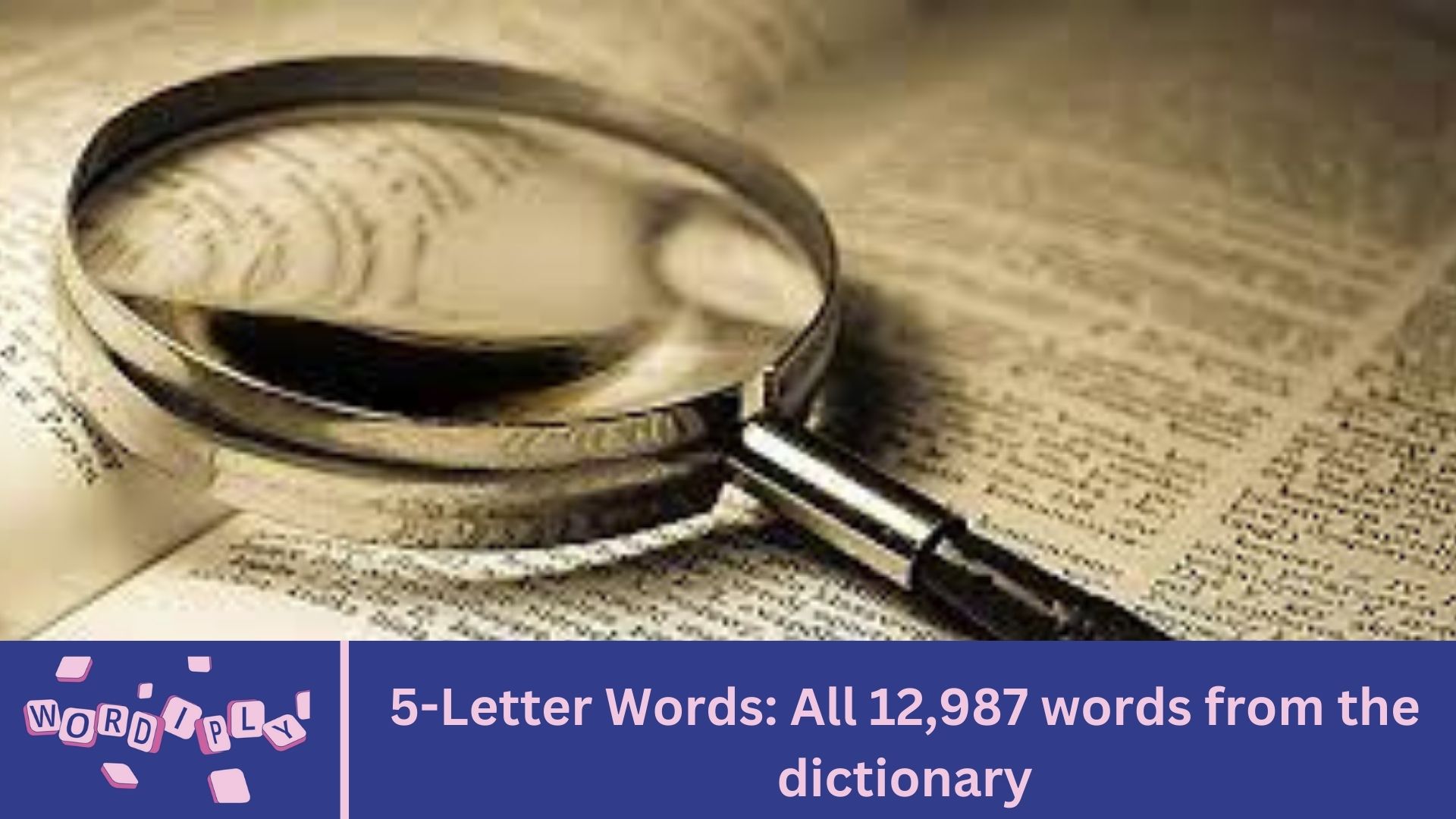
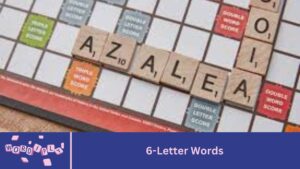

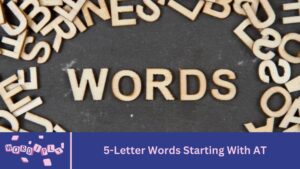


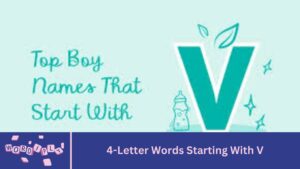
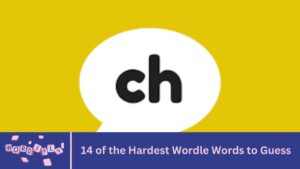
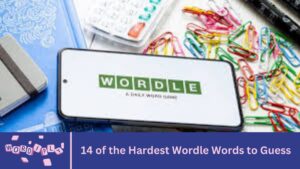

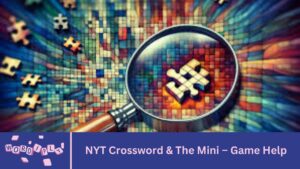
![Science Fiction Book Sales Statistics [2023]](https://wordiplypro.com/wp-content/uploads/2024/09/Add-a-heading-17-300x169.jpg)



